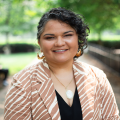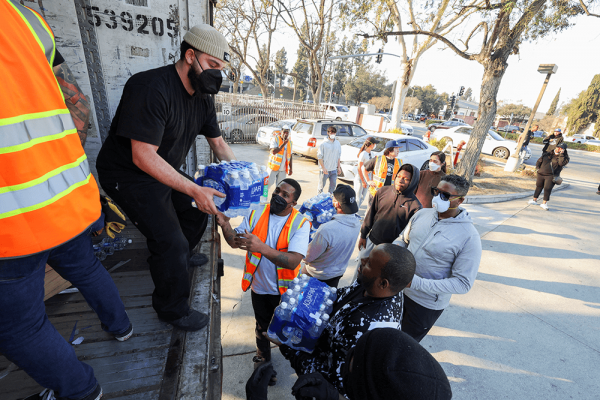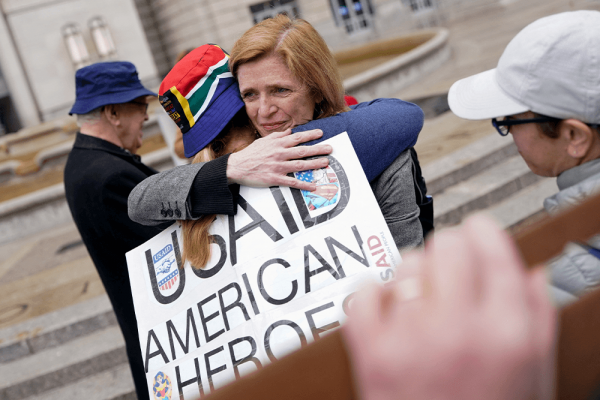In November, I had an opportunity to visit with families journeying to the U.S.-Mexico border to seek asylum, abandoning all they knew in light of the humanitarian crisis that has been brewing in the Central American region.
Among them were people like William. He owned his own business back in El Salvador. But he was threatened and physically harmed on multiple occasions by organized crime members that demanded a large portion of his money in exchange for safety. Unable to pay them and provide for his family, William was set on fire. So, he gave up his business and spent the last few years recovering from the burns and selling fruit on the streets. But that did not provide enough to feed his wife and children.
William left El Salvador with his mom and a group of friends, leaving behind his wife and children, to find the freedom to work and provide for them. They have been on the road for more than a month. As they have been walking, he has organized an internal census to make sure no one gets lost in the process and everyone receives what they need. He coordinated a team of people to write down the names of those sleeping in the same area. And he has asked them to survey families regarding their needs. Some have shoes or diapers written next to their names. William makes sure that when donations arrive, they are given to those who are most in need. He also ensures rules at shelters are respected and he serves as a mediator when conflict arises. He is trusted by the group to represent them in meetings with local authorities. And while William is still unable to provide for his family, he is beginning to live into the freedom he desired by serving this group of Central American families in search of security.
We met this group in Mexico City on the day the largest provisional shelter in the city closed down. They were in transit to a new shelter, La Casa del Peregrino, The Pilgrim’s Home.
Like other liminal spaces, La Casa del Peregrino is a space where the inevitable tensions of life are made more evident. They are in a safer space to lay their heads but not in a fully stable place to rest. At the shelter, they find themselves in between the land they left and the land in which they hope to live.
Christians are called to live our faith as aliens in this land. It is no mistake the experience of migration is the chosen metaphor for our life of faith. Migrant people set out with hope and a vision for something different. They are able to imagine new and better realities — that in itself is prophetic. It is the kind of imagination our faith so desperately needs. Migrant people must adapt to the new environments they encounter, and they are willing to make many sacrifices in the journey as they keep the hope of a new reality in mind. In this way, they are a model for the North American church.
In the Christian faith, we often talk about the now and not yet reality of the kingdom of God. By their mere embodied experience, those we met with on their journey showed us how to live in that tension. They are no longer bound by the circumstances that oppressed them at home, but they are not quite in a space where they can live life to the fullest. So they journey on, waking up one more day, entrusting their lives to God, to the people around them, to their own strength to imagine and forge a new reality.
Migrant people hold the now and the not yet in tension. In the midst of waiting to make it up north and taking their turn for a credible fear interview at the border, life continues. People find ways to feel alive, to keep hope alive. At La Casa del Peregrino, holding on to hope looked like doing karaoke, coloring banners, and making beaded bracelets. They were not devoid of life.
For the North American church, this is a key moment to respond responsibly and humanely to the journey of those who have risked all that they may walk into a better tomorrow. How we live out our faith will mark us. Whether we advocate for and welcome these families will not only reveal the content of our faith but will have major implications on how the glimpses of the kingdom continue to appear among migrant families.
Of course, not all people on this journey have the same story. But we are not asked to distinguish who to help. We are called to risk loving our neighbor regardless of who our neighbor is.
Got something to say about what you're reading? We value your feedback!








